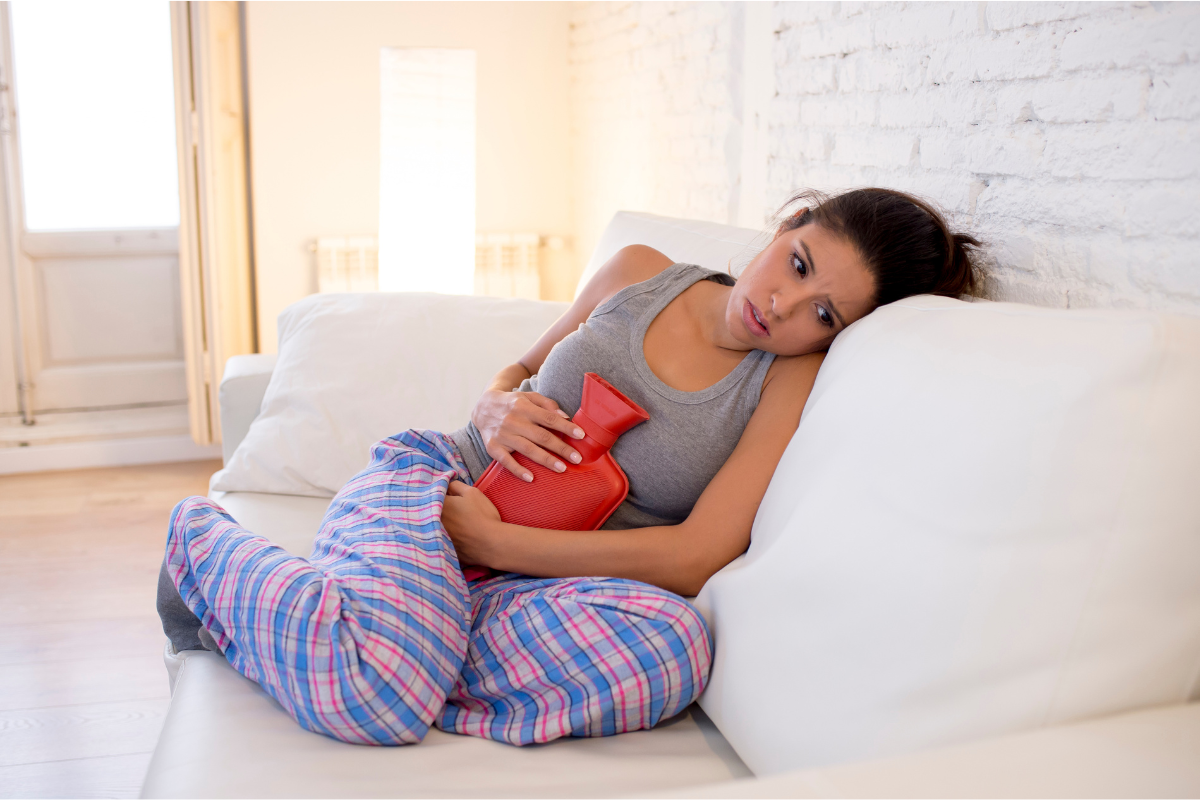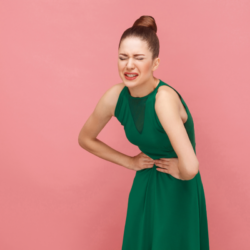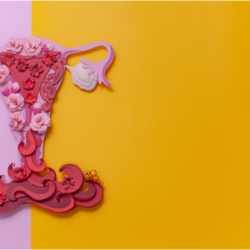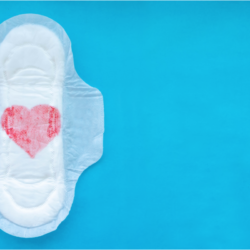During their menstrual cycles, many women suffer from painful periods of varying intensity. But having your period shouldn’t be synonymous with suffering. Diet and lifestyle play an essential role: they can either exacerbate the discomfort or, on the contrary, naturally relieve period pain. In this article, we’ll explore how certain foods and lifestyle habits can help you get through this period better, by reducing menstrual pain naturally and effectively. We’ll also look at natural remedies that are easy to use.
The impact of diet on painful periods
Diet plays a key role in hormone regulation and inflammation, two major factors in the intensity of menstrual pain. Some foods have soothing properties, while others aggravate symptoms.
Which foods are best for relieving menstrual pain?
Anti-inflammatory foods to combat painful periods
Inflammation is one of the main causes of menstrual pain. To limit it, opt for an anti-inflammatory diet containing :
- Omega-3: found in camelina oil, linseed oil, hempseed oil, walnuts and small oily fish (sardines, mackerel, herring). They help to reduce the production of pro-inflammatory prostaglandins, which are involved in menstrual cramps.
- Colourful fruit and vegetables: Rich in antioxidants, they fight inflammation and boost the immune system. So give priority to berries, spinach, carrots and peppers.
- Anti-inflammatory spices and herbs: Turmeric, ginger and cinnamon are particularly effective in relieving menstrual pain.
Foods rich in magnesium to help relieve painful periods
Magnesium is an essential ally for relaxing muscles and reducing cramps. It is found in :
- Almonds, cashew nuts, pumpkin seeds
- Legumes (lentils, chickpeas)
- Wholegrain cereals (quinoa, brown rice)
- Dark chocolate with a high cocoa content (minimum 70%)
The importance of good hydration for painful periods
Drinking enough water helps reduce bloating and improves blood circulation. These 2 features can help relieve menstrual pain. Remember to :
- Drinking 1.5 to 2 litres of water a day
- Opt for soothing herbal teas (camomile, yarrow, ginger)
- Avoid excess salt, which promotes water retention and exacerbates discomfort
What foods should I avoid to avoid aggravating menstrual pain?
Certain foods increase inflammation and promote hormonal imbalances:
- Ultra-processed foods: Rich in refined sugars and additives, they increase inflammation and can aggravate pain.
- Excessive dairy products: These contain saturated fatty acids. They have a noticeable effect on inflammation and cramps.
- Coffee and black tea: Caffeine(an alkaloid) can cause the muscles of the uterus to contract excessively, amplifying the pain.
- Red meat: Rich in arachidonic acid, it can increase the production of prostaglandins responsible for cramps.
Healthy lifestyle: what habits should you adopt to cope better with your period?
As well as diet, certain habits can help to ease menstrual pain and improve general well-being. As far as possible, it’s best to slow down and rest. Our bodies and minds need it. Menstruation is a time of intimacy with ourselves, with our femininity, and we should take care of ourselves with natural remedies.
Rest and stress management: the importance of listening to your body
During your period, it’s essential to slow down and take care of yourself. Stress can actually make the pain worse, so it’s advisable to :
- Try meditation and sophrology to manage pain better, using visualisations or working on a “safe-place”.
- Get enough sleep to allow the body to recover
- Foot reflexology can provide good support, provided you take all the necessary precautions. Preferably practised outside the menstrual period, it works gently and deeply to regulate the body’s various systems. It also relaxes the body-mind axis.
- Slow, deep breaths from the belly provide an opportunity to settle down and become aware of the process taking place within us. They also help to relieve any tension or pain in the abdomen. In addition, they allow the diaphragm to relax and open up, with a positive impact on our emotional management. Cardiac coherence also has a significant impact on pain management.
Physical activity: practise gently
Sport promotes blood circulation and releases endorphins, the natural feel-good hormones. Opt for :
- Menstrual yoga, which loosens up and relaxes the congested pelvic area
- Walking, ideal for stimulating circulation and reducing the feeling of heaviness
- Gentle stretching, to release muscular tension
Natural remedies to relieve pain
- Hot water bottle: Placed on the lower abdomen, it relaxes the uterine muscles and soothes the pain. On the back, it provides invaluable relief and comfort. And on our liver, it will help it to carry out its many functions (processing the hormones used, including oestrogen).
- Warm baths with medicinal plants: an infusion ofyarrow added to the bath water can ease tension.
- Derivative baths, which involve cooling the perineal area, promote circulation and reduce inflammation. Cold sitz baths can also be used occasionally before menstruation.
- Circular massages (clockwise) with essential oils (lavender, clary sage) help to relax the uterus. Whether performed in-house or by a third party, they provide undeniable physical and psycho-emotional relief.
- Visceral massage (Chi Nei Tsang) can also prepare the uterus for evacuation and reduce spasms.
- Transcutaneous electrical neurostimulation (TENS): this technique involves sending light electrical impulses to block pain signals. It is used to relieve menstrual pain effectively and without drugs.
Vitamins and supplements useful for painful periods
The metabolism of prostaglandins, which play a key role in menstrual pain, requires an adequate intake of vitamins and minerals.
- Magnesium: Regulates muscle contractions and reduces pain.
- Vitamins B6 and C: Essential for regulating hormones and reducing inflammation.
- Evening primrose oil: Helps to balance hormones and reduce pain (regulates the production of prolactin, responsible for breast tension)
- Gemmotherapy is a valuable aid, particularly with raspberry buds or ready-made complexes containing several active ingredients.
Conclusion:
Relieving painful periods requires a holistic approach combining a balanced diet, hydration, stress management and natural remedies. By adopting these habits on a daily basis, you can improve your menstrual comfort and significantly reduce pain.
If your pain persists or worsens, don’t hesitate to consult a healthcare professional for appropriate support.
FAQ : Your questions about painful periods
Which foods are most effective against menstrual pain?
→ Omega-3, magnesium and antioxidants are essential for reducing inflammation.
Can you do sport during your period?
→ Yes, but favour gentle exercises such as yoga, walking or stretching.
Does caffeine make menstrual pain worse?
→ Yes, it can contract the uterus and increase the intensity of the cramps.
What natural remedies can help?
→ Hot water bottle, herbal teas, massages and essential oils are very effective.
When should you consult a doctor?
→ If your pain is very intense, disabling or accompanied by other worrying symptoms.
Sources:
- https://www.ameli.fr/assure/sante/themes/regles-douloureuses/que-faire-quand-consulter
- https://www.vidal.fr/maladies/sexualite-contraception/regles-douloureuses-dysmenorrhees/traitements.html
- https://www.vidal.fr/maladies/sexualite-contraception/regles-douloureuses-dysmenorrhees/causes.html
- https://www.vidal.fr/maladies/sexualite-contraception/regles-douloureuses-dysmenorrhees/phytotherapie-plantes.html





